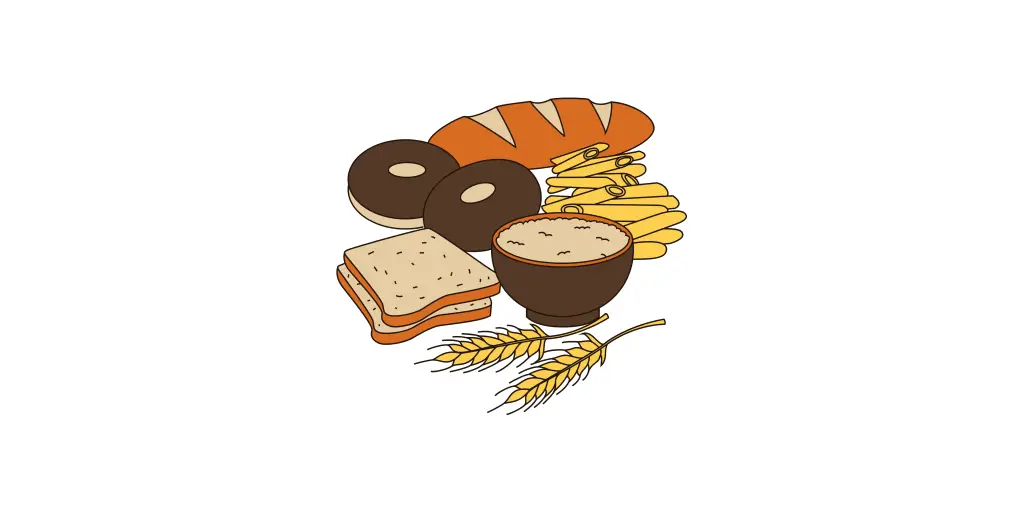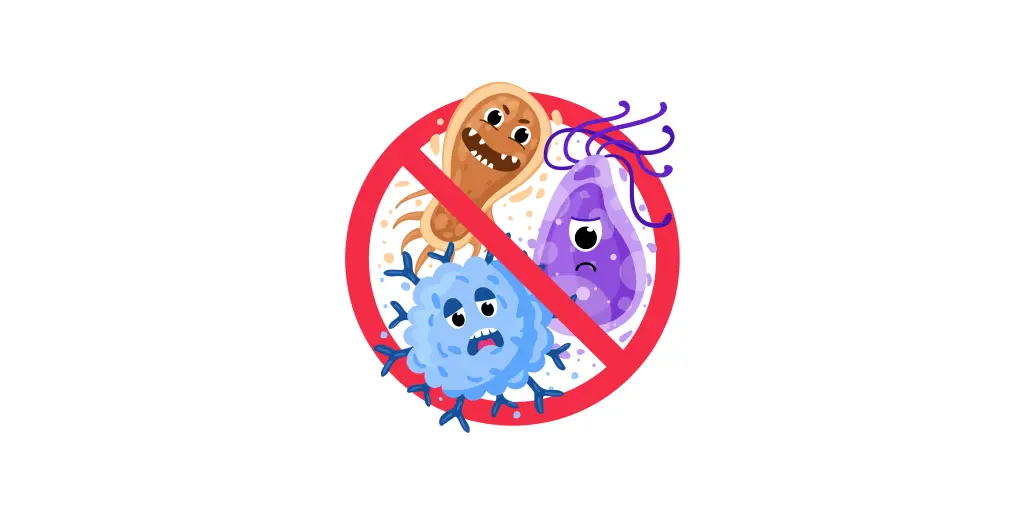Table of Contents
The Mediterranean diet is more than just a cuisine. It’s a way of life. Nestled in the Mediterranean Sea’s azure waters and bathed in the warm rays of the sun, it’s a culinary tradition that’s not only captivated the world’s taste buds but has also become a symbol of health and longevity.
The Mediterranean diet is rooted in the eating habits of the countries that surround the Mediterranean Sea. But it’s more than a cuisine; it’s an entire lifestyle that’s celebrated for its positive impact on the body and soul.
As we dive deeper into the Mediterranean diet’s roots, let’s take a look at its rich tapestry of flavors and the health benefits that have helped make it a world-renowned symbol of healthy living.
Bountiful Fresh Fruits and Vegetables

Fruits and vegetables are at the core of the Mediterranean diet. Produced from the region’s fertile soil, these colorful fruits and vegetables are packed with high-quality nutrients. From tomatoes, olives, leafy greens, and citrus fruits, you’ll find a wide variety of fruits and vegetables to choose from.
Vitamins, minerals, antioxidants, and fiber are among the most abundant nutrients in the Mediterranean diet. These colorful fruits and vegetables support your overall health by strengthening your body’s natural defenses against various diseases.
When you add fruits and vegetables to your meals, you’re not just indulging in delicious flavors, but you’re also supporting your health.
Heart-Healthy Olive Oil

The Mediterranean diet champions olive oil, often dubbed “liquid gold” for its culinary significance and health benefits. Extra virgin olive oil, the crown jewel, is revered for its rich, distinct flavor and well-documented health properties.
This liquid gold boasts an abundance of monounsaturated fats and potent antioxidants like oleocanthal and oleuropein, contributing to a reduced risk of heart disease, lower inflammation, and protection against oxidative stress. As a cornerstone of the Mediterranean dietary pattern, olive oil adds not only a delightful taste to dishes but also a wealth of health-promoting qualities.
Lean Proteins, Fish, and Seafood

While the information provided describes the “Oceanic abundance” aspect of the Mediterranean Diet, it differs from the previous format, which combined two points into a paragraph. Here’s a revised paragraph that includes the information about Fish and Seafood:
The Mediterranean Sea’s vibrant blue waters play an important role in shaping the region’s dietary pattern, with fish and seafood being at the heart of the Mediterranean diet. The abundance of seafood, such as salmon and mackerel, as well as sardines and shellfish, is rich in Omega-3 fatty acids, which play a vital role in heart health, and brain function and may even reduce the risk of chronic diseases.
Whole Grains and Legumes

Whole grains and legumes are the building blocks of the Mediterranean diet. Brown rice and quinoa are two of the most common grains found in the Mediterranean diet, along with bulgur wheat lentils and chickpeas. They are rich in complex carbohydrates, protein, and fiber. Not only do they provide long-lasting energy and support digestive health, but they also help you feel full, making them an important ally in your weight loss journey. Whole grains and legumes also provide essential nutrients, making them an essential part of your diet.
Moderate Dairy and Poultry Consumption

The Mediterranean diet includes a moderate amount of dairy, mostly yogurt and cheese. This is for calcium and protein, as well as gut health benefits. Plant-based proteins, such as legumes, whole grains, and poultry, are also part of the Mediterranean diet. This approach encourages dietary diversity and balances animal and plant protein sources, helping to improve overall health. Additionally, low-fat dairy or fermented dairy can increase the nutritional value.
Emphasis on Herbs and Spices

Herbs and spices are not only known for their bright colors and fragrances, but they are also the unsung heroes in the Mediterranean diet. They weave a flavorful and health-promoting tapestry into every dish.
Herbs like oregano and basil, as well as herbs like thyme and rosemary, not only add complexity and depth to meals, but they also contain a wide range of antioxidant and anti-inflammatory chemicals. These powerful plant compounds help to keep your heart healthy, support your brain, and may even protect you from chronic diseases.
Spices like turmeric, cinnamon, and others add to the flavor profile while also enriching the health profile. Curcumin, for example, is known to have anti-inflammatory properties, making it a great addition to any meal.
In short, herbs and spices elevate the culinary experience, while also embodying the holistic approach to well-being that the Mediterranean diet is known for.
Mediterranean Diet

The Mediterranean diet isn’t just about the food. It’s about the social and communal experience of sharing meals with friends and family. These meals aren’t just for sustenance; they’re a chance to enjoy flavors, connect, and enjoy each other’s company. Eating with friends and family in this relaxed, communal way builds feelings of connection and belonging. This reduces stress levels and encourages a more conscious appreciation of food and life, which resonates well with the Mediterranean’s slower pace and focus on well-being.
Disease Prevention and Longevity

Not only is the Mediterranean diet delicious and culturally enriching, but it also has a reputation for improving health outcomes through its effect on various health indicators.
For example, numerous studies have shown that the Mediterranean diet reduces the risk of developing heart disease. This is due to its focus on heart-protective fats such as olive oil, as well as lean protein sources and antioxidant-rich foods.
The Mediterranean diet’s wide range of antioxidants, especially from fruits and vegetables, and its high intake of olive oil, has been linked to a reduction in some types of cancer risk.
It’s important to remember that while research is always ongoing, it’s essential to consult with a healthcare professional before adopting any dietary approach to make sure it’s right for you and your health needs.
Weight Management and Diabetes Prevention

The Mediterranean diet isn’t just about eating tasty foods. It’s a balanced diet that emphasizes nutrient-rich whole foods. This approach to eating has been recognized for its health benefits.
It’s been linked to weight management because of its balance of carbohydrates, protein, and healthy fat. The Mediterranean diet’s focus on whole grains and legumes, as well as fruits and vegetables, can help keep blood sugar levels in check.
The Mediterranean diet has also been linked to type 2 diabetes prevention and management. However, it’s important to consult with your healthcare professional before changing your diet to make sure it’s right for you and your health goals.
Cognitive Health and Alzheimer’s Prevention
The Mediterranean diet goes beyond what’s on the plate. Not only does it provide delicious food, but it also promotes brain health and overall wellness.
The Mediterranean diet focuses on brain-boosting ingredients like fish and olive oil, as well as fruits and vegetables. These nutrients may support brain function and may even reduce your risk of Alzheimer’s disease.
This holistic dietary approach doesn’t just focus on what you eat, it’s about how you eat it. The Mediterranean diet encourages mindful eating and social connection, which in turn promotes wellness and longevity.
It’s important to remember that research is always ongoing, so it’s best to consult a healthcare professional before trying any new diet to make sure it’s right for you and your health goals.
Conclusion
The Mediterranean diet is more than just a menu. It’s a life-affirming culinary philosophy that unites health, joy, and community. Drawing inspiration from the fertile soil and crystal clear water of the Mediterranean, the Mediterranean diet invites people to enjoy the bounty of nature while nourishing the body and mind.
As we discover the Mediterranean diet’s health benefits, we are uncovering not just a recipe for health, but a banquet for longevity.
The Mediterranean diet is a symphony of flavor and a lifestyle that resonates with the rhythms of timeless well-being.
Also Read: Empower Your Health: 5 Benefits and Drawbacks of Intermittent Fasting for Optimal Success
Quick Answers
Can I follow the Mediterranean diet if I have dietary restrictions or food allergies?
Yes, the Mediterranean diet is highly adaptable and can be customized to accommodate various dietary restrictions or food allergies. Focus on incorporating plant-based foods, lean proteins, and healthy fats that align with your dietary needs and preferences.
Is this diet suitable for weight loss?
While weight loss is not the primary focus of the Mediterranean diet, many people experience weight management benefits when adopting this dietary pattern. By emphasizing whole foods, portion control, and mindful eating, the Mediterranean diet can support sustainable weight loss goals.
Are there specific recipes or meal plans available for the Mediterranean diet?
Yes, numerous resources provide Mediterranean diet recipes, meal plans, and cooking tips to help you incorporate this dietary pattern into your lifestyle. Look for reputable sources, such as cookbooks, online recipe databases, and registered dietitian websites, for inspiration and guidance.
Can I still enjoy sweets and desserts on the Mediterranean diet?
While the Mediterranean diet emphasizes whole, minimally processed foods, there is room for occasional indulgences, including sweets and desserts. Opt for homemade treats using natural sweeteners, such as honey or maple syrup, and enjoy them in moderation as part of a balanced diet.
Is the Mediterranean diet suitable for vegetarians or vegans?
Yes, the Mediterranean diet can be adapted to accommodate vegetarian or vegan dietary preferences by focusing on plant-based foods, legumes, nuts, seeds, and healthy fats. With its emphasis on fruits, vegetables, whole grains, and plant proteins, the Mediterranean diet aligns well with vegetarian and vegan lifestyles.
How can I incorporate Mediterranean diet principles into my daily meals?
Start by incorporating more plant-based foods, such as fruits, vegetables, whole grains, and legumes, into your meals. Experiment with Mediterranean-inspired recipes, cooking techniques, and flavor profiles to discover new culinary delights while nourishing your body with wholesome ingredients.
